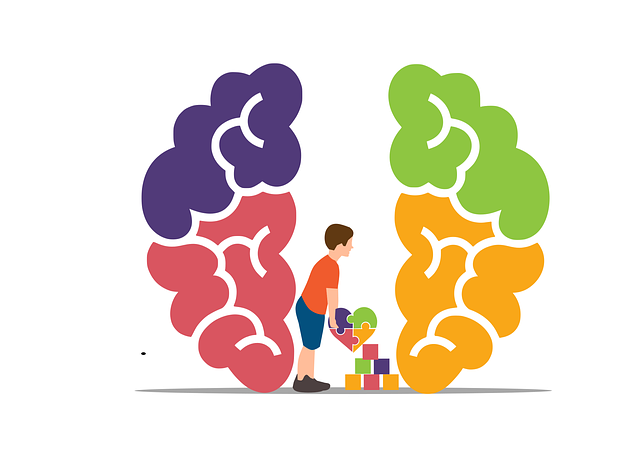Denver Parenting Skills Therapy prioritizes risk assessment and harm minimization through comprehensive evaluation of therapeutic practices, client-therapist dynamics, and external factors like cultural barriers. This involves strategies like Healthcare Provider Cultural Competency Training and Burnout Prevention to ensure well-being for both clients and therapists. By integrating mindfulness meditation, self-care practices, and social skills training, families are empowered to proactively manage risks, create safe environments, and promote mental wellness using harm minimization planning techniques tailored to individual needs.
In every parent’s journey, understanding risk assessment and implementing harm minimization strategies is vital through Denver Parenting Skills Therapy. This comprehensive guide delves into the core principles of risk management, offering insights on identifying potential hazards and developing effective mitigation plans. From recognizing sources of harm to practical tips for home-based risk reduction, this article equips parents with tools to create a safer environment. Learn how continuous monitoring and adjustments are key to ensuring long-term safety in a dynamic world.
- Understanding Risk Assessment: A Cornerstone of Denver Parenting Skills Therapy
- Identifying Potential Harms and Their Sources
- Developing a Comprehensive Minimization Plan: Strategies for Parents
- Practical Implementation: Tips for Effective Risk Management at Home
- Monitoring and Adjusting: Ensuring Continuous Safety in a Dynamic Environment
Understanding Risk Assessment: A Cornerstone of Denver Parenting Skills Therapy

Risk assessment is a fundamental aspect of Denver Parenting Skills Therapy, providing a structured framework for understanding and addressing potential challenges within families. This process involves meticulously evaluating various factors that could pose risks to children’s well-being or trigger behavioral issues. By identifying these risks, therapists in Denver can develop tailored strategies aimed at minimizing harm and fostering a safer, more supportive environment. It empowers parents with the knowledge and tools needed to navigate complex situations effectively.
One of the key components integrated into this assessment is mindfulness meditation, which helps individuals cultivate awareness and emotional regulation. This technique, often coupled with mental wellness coaching programs, supports anxiety relief and promotes healthier coping mechanisms. Through such comprehensive approaches, Denver Parenting Skills Therapy ensures that risk assessment translates into actionable plans for enhancing family dynamics and overall mental wellness.
Identifying Potential Harms and Their Sources

Identifying potential harms and their sources is a critical step in risk assessment and harm minimization planning, especially within the context of Denver Parenting Skills Therapy. This process involves a thorough examination of various factors that could lead to adverse outcomes for clients and their families. By understanding these risks, therapists can proactively develop strategies to mitigate potential harm.
In the realm of healthcare, particularly when considering Denver Parenting Skills Therapy, it’s essential to recognize that harms may arise from multiple sources, including therapeutic interventions, client-therapist relationships, and external factors such as systemic issues or cultural barriers. For instance, a Healthcare Provider Cultural Competency Training can equip therapists with the knowledge and skills to navigate diverse cultural backgrounds, thereby reducing potential misunderstandings or insensitive practices that might otherwise cause harm. Additionally, implementing Community Outreach Program Implementation can foster connections with local resources, enhancing the support system available to clients and indirectly minimizing certain risks. Burnout Prevention Strategies for Healthcare Providers are also vital, as they ensure therapists maintain their well-being, which is fundamental in delivering consistent and effective care.
Developing a Comprehensive Minimization Plan: Strategies for Parents

Developing a comprehensive harm minimization plan is an essential aspect of responsible parenting, and seeking professional guidance from Denver Parenting Skills Therapy can equip parents with valuable strategies. This process involves identifying potential risks and implementing proactive measures to ensure the well-being of children. One effective approach is integrating self-care practices into daily routines; when parents prioritize their emotional intelligence and overall mental health, they become better equipped to handle challenging situations and respond sensitively to their children’s needs.
Social skills training is another powerful tool that can enhance family dynamics. By fostering open communication and teaching positive conflict resolution techniques, parents can create a safe and supportive environment. Through therapy and practice, families can navigate risks and difficult behaviors more effectively, ensuring a healthier and happier home life.
Practical Implementation: Tips for Effective Risk Management at Home

Implementing effective risk assessment and harm minimization strategies at home is a vital aspect of fostering a safe and nurturing environment, especially for parents in Denver seeking parenting skills therapy. Start by identifying potential hazards within your living space and assessing their likelihood and severity. For instance, securing loose furniture, installing child-resistant locks on cabinets, and keeping toxic substances out of reach are basic yet crucial steps. Regularly reviewing and updating these measures can prevent accidents and promote a sense of security.
Encourage mindfulness meditation as a family to enhance mental health policy analysis and advocacy at home. Simple practices like mindful breathing or gratitude routines can reduce stress levels and improve overall well-being, which is essential for effective burnout prevention strategies for healthcare providers. By incorporating these techniques into daily routines, you empower your family to navigate challenges with resilience, further strengthening your risk management approach within the comfort of your Denver home.
Monitoring and Adjusting: Ensuring Continuous Safety in a Dynamic Environment

In the ever-evolving landscape of risk assessment and harm minimization planning, particularly within Denver Parenting Skills Therapy, monitoring and adjusting are key to ensuring continuous safety. Dynamic environments, whether in therapy settings or family homes, demand proactive strategies. Regular assessments help identify emerging risks or changes in a client’s situation, allowing for timely interventions. This process involves not just detecting potential hazards but also understanding their context and impact.
Effective monitoring requires a multifaceted approach, including Crisis Intervention Guidance, Mood Management, and Communication Strategies. By integrating these techniques, therapists and caregivers can adapt to the nuances of individual cases, making necessary adjustments in harm minimization plans. Such flexibility is crucial for maintaining a safe and supportive environment, fostering growth, and promoting positive outcomes for clients, especially during periods of heightened vulnerability or stress.
Denver Parenting Skills Therapy emphasizes the importance of risk assessment and harm minimization planning as fundamental tools for parents to ensure their children’s safety and well-being. By understanding potential risks, identifying sources of harm, and developing comprehensive strategies, parents can create a secure environment. Practical implementation tips and continuous monitoring allow for dynamic adjustments, ensuring a safe and nurturing space for children to thrive. Integrating these strategies into daily life through Denver Parenting Skills Therapy equips parents with the skills needed to navigate challenges effectively.














